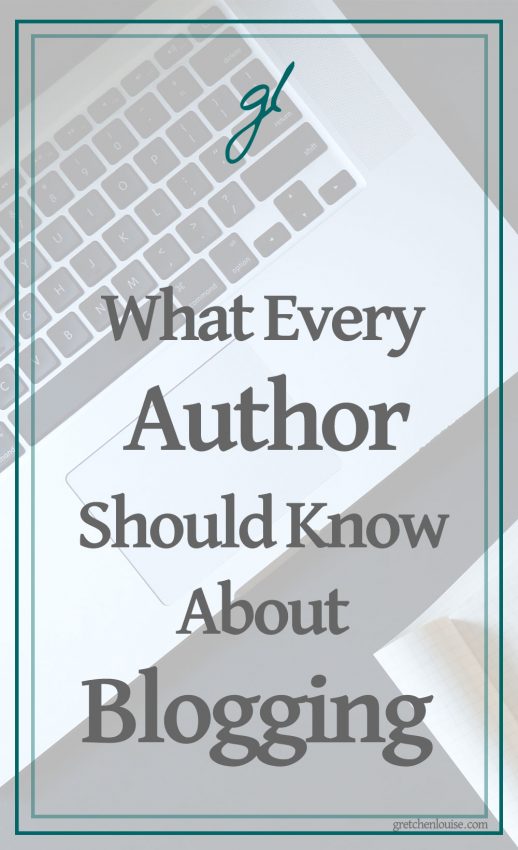What Every Author Should Know About Blogging
It had been thirteen years since I had attended a writers conference. Back in 2000, blogging was pretty much unheard of. But at the writers conference I attended in 2013, every author I met was fascinated by the fact that I was a blogger. Social media was in large part a mystery to them, but they all wanted to learn how to blog. Yet they spoke of their blog and their website as if they would be separate entities and I was one of a handful Tweeting the conference hashtag. Some of the authors at the conference had even been told by agents, “I like your proposal: come back when you have an online platform and we’ll talk.”
Most authors I know would be happiest if they could spend every working hour sitting in a room and writing. And 100 years ago, that worked. But authors are more responsible now than ever for helping to market their book and connect with their audience—and in a large part, that takes place in the often foreign world of social media.
Bloggers and authors have so much they can teach each other, if they are willing to bridge the technological—and sometimes generational—gap and learn from each other. Here are four things I think authors could learn from bloggers.
1. The importance of an online platform.
A blogger who has 10,000 readers showing up at their blog every day is the perfect catch for an agent: there are almost 10,000 people who are going buy every book that author writes. Bloggers know the importance of an online platform—and they know how to use it. Terms like analytics and reach are in everyday use with bloggers. And when they become authors, they let their blog readers vote on cover choices and brainstorm about what Twitter hashtag they’ll use for their upcoming book (some have even taken to publishing the hashtag in the book’s page footer).
But bloggers also know that a platform is a place from which to serve, not to be served. They give their readers free chapters and they listen to their input. In so doing, blogging authors win the loyalty and trust of their readers on a whole new level.
2. The power of brevity.
If Twitter shows how 140 characters can pack a punch, then blogging demonstrates that 800 words can have just as much impact as an entire chapter. Authors can get overwhelmed with blogging, thinking that each blog post has to be chapter length. But bloggers know that the power of blogging is in its brevity. Blog posts are read on a bus ride or over lunch: they need to be short and to the point.
Of course, some authors would do well to become more concise in their books as well as their blog posts, just as some bloggers need to remember they don’t have to fit an entire book’s worth of information in one blog post. Blogging gives an excellent arena in which to practice the brevity which the speed of social media demands.
3. The beauty of your voice.
Bloggers love to talk about finding their voice. It’s that moment when an author can be identified by the way they write, without ever needing to see a byline. It’s that point in your career where you’re no longer copying others but creating in a voice that’s yours and yours alone.
Too often, when you read a book by a public speaker, it doesn’t sound a thing like the person you’ve heard. But when a blogger who is secure in their voice sets out to write a book, you’d think you were on their blog except for the feel of a bound book in your hands. Bloggers understand that books don’t have to sound stuffy to be written professionally.
4. The joy of interacting with your readers.
When you publish a blog post, you can get instant feedback. It may not all be positive, but you can find out what your readers think and what they wish you’d explain more clearly. Many bloggers have found that blogging a series before writing a book is an excellent way to explore your reader’s interest in a topic. Blog posts let your readers get to know the author behind the book. Blogging gets you up close and personal with your audience before you ever get to book signings and speaking engagements.
If there’s one thing blogging conferences have taught me, it’s that writers should not view each other as competition. We as Christians are writing for the same purpose, as with one voice, to point our readers to the same Lord. How could we not want to help each other as we answer the call to write?
Authors, what are some questions you have for bloggers?
Bloggers, do you have any blogging insight you’d like to share with authors?
Please share your insight in the comments!
Don’t miss the first post, “What Every Blogger Should Know About Writing.”




Oh miss G – you already know that I’m an author trapped inside of a blogger’s body! It’s a hard balance to make them both work.
Thanks for sharing the tips and pointers.
Blessings.
It is a balancing act–especially since the face of blogging is always changing!
But you exemplify the beauty of a blogger who has found their voice. 🙂
These are such excellent – and very true – points! Having been in the Christian publishing industry for 20 years, but only recently in the blogging world, I think you’ve really nailed it here, Gretchen.
Thank you so much, Lisa! I really appreciate your comment, especially with your perspective from the publishing industry.